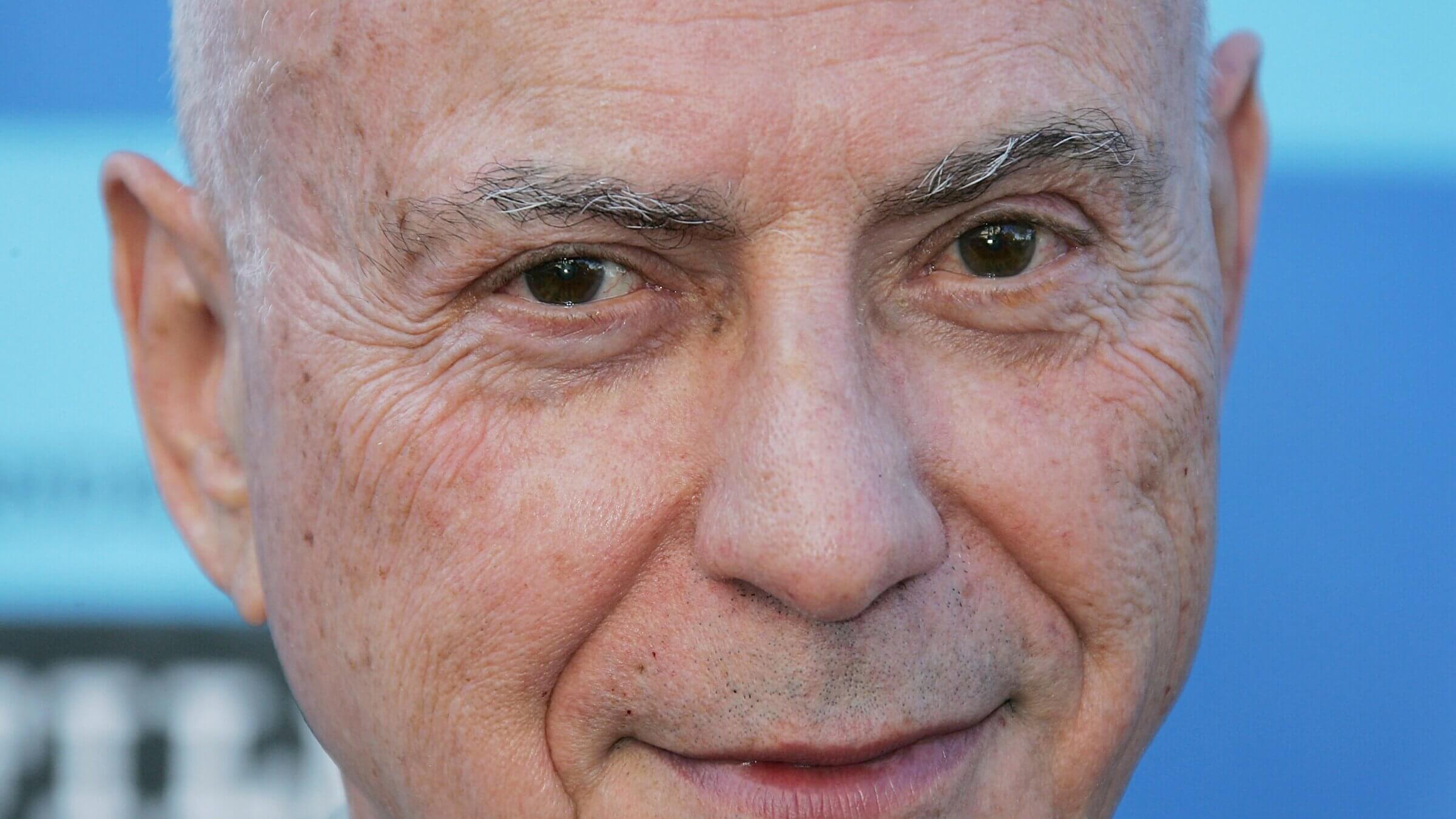Alan Arkin and the three pillars of Judaism
Though not an observant Jew, the actor embodied more than a few Jewish values

Alan Arkin, circa 2006. Photo by Getty Images
The first time I saw Alan Arkin was in the film Catch-22, where he played the character Capt. Yossarian, doing his best to get released from the army as he sees senseless death upon death. I was drawn to it by Joseph Heller’s sprawling anti-war novel, on which it was based, but I left devastated by Arkin’s ability to portray the overall madness of war and to fully use the interplay of intellect, words, emotions, and body in a transcendent performance.
Arkin’s performance was like a great dancer who makes a movement that’s seemingly beyond reach, then transcends it and take us with them.
From then on Alan Arkin performances were my mainstay: The Heart Is a Lonely Hunter, Popi, The Russians Are Coming, The Russians Are Coming, The In-Laws, Glengarry Glen Ross, Escape From Sobibor, Little Miss Sunshine, The Kominsky Method, and others.
Describing Arkin, who died June 29 at age 89, in light of dance is not a stretch. Early on, he trained with Benjamin Zemach, a disciple of Konstantin Stanislavsky at the Moscow Art Theatre, as well as a founding member of the Habimah Jewish Theatre. From him, Arkin learned acting techniques later known as the Method, as well as the physicality that derived from from Jewish dance and gesture.
Arkin continued to hone his craft in the improvisatory incubator of The Second City in Chicago and its predecessor, Compass Players, which spawned other greats like Paul Sills, Mike Nichols, Elaine May, and many more.
Their story-theater technique, pioneered by acting teacher Viola Spolin in the 1940s and ’50s, originated from social work with immigrants, and incorporated ethics from Judaism, such as welcoming the stranger, seeking freedom, and an ongoing dialogue with the ‘other’ from Jewish philosopher Martin Buber’s I and Thou.
Spolin’s Talmudic method and her endless use of dialogical questioning led her to the famous “yes, and…” in order to find the truth of a scene.
In The Heart is a Lonely Hunter, adapted from Carson McCullers’ book, Arkin plays a deaf and speech impaired character, John Singer. Though he doesn’t speak a word, he witnesses loss, fear, sexual awakening, love, and racism. McCullers originally conceived the character as a Jew named Harry Minowitz. Arkin was pitch-perfect in the part — a liminal outsider in a Southern world longing to heal the trauma created by societal othering, ableism, racism, deep family pain and loneliness, and at the movie’s end he is screaming for the world to be repaired. McCullers once described the story as an ironic parable of fascism.
I spoke with Arkin’s son Matthew, who is a well-respected actor and acting teacher.
When I asked him about his father’s Jewish identity, Matthew said he was reluctant to admit to his Judaism; he was more into Eastern philosophy. Still, he conceded that others saw him as Jewish and many of the parts he played were Jewishly inspired.
“There was a time when my father had just completed an interview,” Matthew told me. “I asked him how it went. He said, ‘Not good. He asked a lot of stupid questions, for instance: ‘Why do I usually play a certain “type” of character?’ I said to him that first I read the part and then if I like it, I do it, and if I don’t, I don’t.’”
“But Dad,” Matthew responded, “you do most often play a certain kind of character.” His father shot back, “What type of character do I play?” Matthew answered, “You most often play a character who is looked at as crazy, because you are the only sane one in an insane world.”
Matthew Arkin likened his father’s approach to a philosophy depicted in Douglas Rushkoff’s book Nothing Sacred, which he paraphrased as “Don’t worry about Jewish observances, going to temple, holidays, etc. Instead there are three Jewish pillars — iconoclasm, monotheism and social justice.’ For Dad that meant smashing idols.”
Over Alan Arkin’s illustrious career he chose roles that leapt out for their irascibility, their power to stand up for the “little guy,” giving voice to the voiceless, and smashing idols in order to wake us up.
He was a mensch, and chose his roles wisely and with artistic care. In an interview with Dick Cavett, Arkin said he didn’t want roles that were two-dimensional; he wanted to tell complex stories about the human condition that expressed drama as well as comedy, empathy as well as being thought-provoking. And so that we would always keep asking, “yes, and…”
















